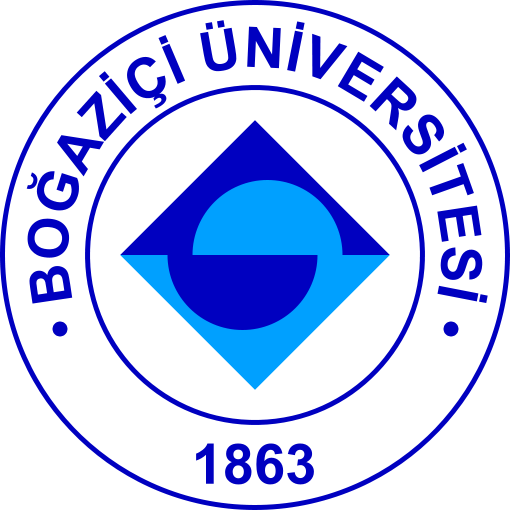Menu
Travel Info:
Participants
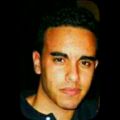 Waleed Abdel-Naby |
Waleed Abdel-Naby was born and raised in New York City, where he received his B.S. in Biomedical Engineering from the New York Institute of Technology and worked with Dr. Niharika Nath on a project developing a novel chemotherapeutic agent, JS-K, against acute lymphoblastic leukemia. Currently a 3rd year Biomedical Engineering PhD student, his research with Dr. Mark Rosenblatt is focused on developing bio-engineered silk based biopolymers for use in reconstruction of the ocular surface, which was recently awarded the 2013 Clinical and Translational Science Center Novel Technology Team Award from the Weill Cornell Medical College of Cornell University. Excelling in both the academic and laboratory settings has allowed him to earn multiple fellowship awards, including the prestigious NSF Graduate Research Fellowship Program Award. Outside of the lab, he enjoy taking part in a number of community service activities including math and science tutoring at the local community center, as well as coaching a junior league soccer team. He is currenty a PhD student at the dept of Biomedical Engineering at Cornell. |
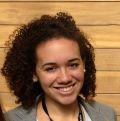 Megan Armstrong |
Megan Armstrong was born and raised in Ann Arbor, MI. She left Michigan for New York to earn her bachelor degree in Biomedical Engineering at Columbia University. Megan stayed on at Columbia and is now a first year Ph.D. student in the department of Biomedical Engineering. She currently works in the Lab for Nanobiotechnology under the direction of Professor Hess where she applies physics to understand the self-assembly processes directed by molecular motors and the active materials that might arise. Outside of her academic work, Megan is an amateur photographer and avid hunter for new music. |
 Kathleen Atkatsh |
Kathleen Atkatsh is a rising senior biomedical engineering undergraduate at Columbia University specializing in cell and tissue engineering. She currently works in the Molecular and Microscale Bioengineering Laboratory under the direction of Professor Samuel Sia on a tissue engineering project to develop a 3D skin equivalent. She has previously worked in Columbia's Musculoskeletal Biomechanics Laboratory as an Amgen scholar conducting cartilage tissue engineering research. She also has experience in acoustics and finite element analysis from her work in the applied science division at Weidlinger Associates, Inc. Following her undergraduate studies at Columbia, Kathleen plans to pursue a PhD in biomedical engineering. |
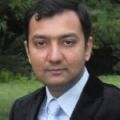 Ahmad Chan |
Ahmad Chan is a biomedical informatics and semantic web researcher with two master degrees in engineering and IT from prestigious universities of Korea and Pakistan. He has been working on biomedical informatics, artificial intelligence, semantic web for life science, machine learning, and information engineering domains for last five years. Ahmad is currently a PhD candidate in University of New Brunswick where he is working on the development and optimization of data integration techniques based on semantic web to facilitate the life scientists. In 2013, he won first prize for his software about Canadian health data analysis and visualization from New Brunswick Health Foundation. Ahmad is currently working with Yale school of medicine to develop a linked images API. He has thirteen research publications in his credit. |
 Rebecca Chung |
Rebecca Chung is currently a PhD Candidate in Biomedical Engineering at Stevens Institute of Technology, where she is investigating mechanical stimulation for bone regeneration, working under Dr. Antonio Valdevit, PhD. Her research to date has resulted in over a half dozen presentations at conferences both nationally and internationally. In addition to her research, she is an academic instructor for the Exploring Career Options in Engineering and Science (ECOES) Program at the institution as well as a teaching assistant for the Biomedical Engineering Senior Design capstone course. In her spare time, Rebecca enjoys live music, digital photography, food, and travel. |
 Yasaman Delaviz |
Yasaman Delaviz received her bachelor degree from University of Toronto in Materials Science and Engineering in 2011. She is currently a third year Ph.D. candidate working under the supervision of Dr. J Paul Santerre at the Institute of Biomaterials and Biomedical Engineering, at the University of Toronto. Her research is focused on two aspects of biomaterials that play a significant role in the longevity and success of restorative materials in the oral cavity: the biological factors (i.e. potent enzyme complexes) causing the biochemical breakdown of traditional polymeric material in the oral cavity, and the chemical synthesis of antimicrobial monomers that can be incorporated into dental restoratives and adhesive systems. In her spare time, she enjoys yoga, travelling, and the theatre especially Broadway shows. |
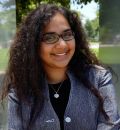 Akhila J. Denduluri |
Akhila J. Denduluri, of Hyderabad, India, is a Masters (Thesis) candidate in the department of Biomedical Engineering at Johns Hopkins University. She studied for two years at Osmania University, India and completed her Bachelor of Science degree in Bioengineering from University of California Riverside in 2012. In the lab of Dr. Quiñones-Hinojosa’s at Hopkins, she is exploring the use of nanoparticle-transfected human adipocyte-derived mesenchymal stem cells (hAMSCs) as a potential brain tumor therapeutic. She has interests in a wide array of fields ranging from drug-delivery systems to synthetic biology. Apart from biomedical engineering, she is interested in working on education and health care in developing countries, traveling, reading, and studying history and philosophy. |
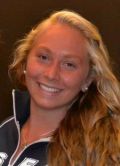 Maria Filsinger Interrante |
Maria Filsinger Interrante is a junior Bioengineering major at Stanford University, where she is currently involved in metabolic engineering research in the synthetic biology group of Prof. Christina Smolke. Her interests lie in the application of engineering tools and approaches to problems in medicine, and after graduating from Stanford she intends to pursue an MD PhD. At Stanford, she is involved in STEM education on campus through her role as Co-Director of Outreach for the Society of Women Engineers, and in her free time she serves as a captain of Stanford's Equestrian Team, volunteers as an EMT, tutors high school students, and is learning to dance. |
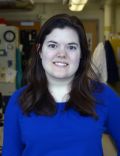 Marie Godla |
Marie Godla is currently a biomedical engineering PhD student in the Kirby Research Group at Cornell University in Ithaca, NY. Her work focuses on microfluidic capture of circulating tumor cells from blood for ovarian cancer applications. At Cornell, Marie is a recipient of two prestigious fellowships: the NSF GRFP and the Cornell Presidential Life Sciences Fellowship. Prior to coming to Cornell, Marie earned her B.S. in engineering at Harvey Mudd College in Claremont, CA, where she worked in a corneal tissue engineering lab for three years. After college, she spent a year doing bone biomechanics and tissue engineering research at ETH Zurich in Switzerland as a Whitaker International Fellow. Her long-term career goal is to direct research and development at a medical device or pharmaceutical company. |
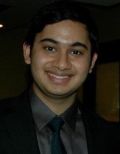 Shaurya Gupta |
Shaurya Gupta is completing his second year studies in Biomedical Systems Engineering at the University of Toronto. Graduating in 2016, he plans to major in regenerative medicine and neural sensory engineering. He is a recipient of the University of Toronto Department of Engineering scholarship and the President’s scholarship. At UofT, he is involved with promoting sustainability and poverty alleviation in Africa through his role as VP Finance at Engineers Without Borders. Having lived in four continents, he likes interacting with people. He has a passion for technology, and keeps up to date with the latest technological developments. In his spare time, he likes to travel, swim and play football. |
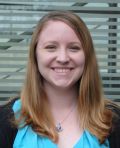 Josa Hanzlik |
Josa Hanzlik is a sixth year Biomedical Engineering Ph.D. candidate at Drexel University. At Drexel, she works under the advisement of Dr. Steven Kurtz in the Implant Research Center. In 2008, she received her B.S/M.S. in Mechanical Engineering at Rochester Institute of Technology. Her doctoral research has focused on assessing of the amount of bone ingrowth into porous orthopaedic implants. Josa won the Whitaker Fellowship (2013-2014) to conduct research in the Netherlands at Radbound University under the advisement of Dr. Nico Verdonschot. During her year abroad she will develop finite element models to help answer remaining questions from her retrieval work. Josa aims to determine patient or implant design factors that affect the amount of bone ingrowth in porous orthopaedic implants. Beyond Mechanobiology, Josa is also passionate about increasing the number of women in STEM careers. She founded and was president of the Drexel Graduate Women in Science & Engineering for 2 years. Her work through this student group has resulted in two peer-reviewed publications and several conference proceedings. This group has also been awarded several Drexel Graduate Student Association Awards for their outreach efforts in the local Philadelphia community. |
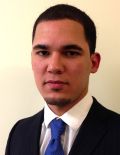 Jean C. Cruz Hernández |
Jean C. Cruz Hernández grew up in Utuado, Puerto Rico. He majored in Industrial Biotechnology at University of Puerto Rico at Mayagüez where he worked with Prof. Carlos Ríos Velázques on developing screenings for enzymes of industrial and biomedical importance in forest soils in Puerto Rico using independent and functional genomic approaches. Currently, as a 3rd year Ph.D. student in the Schaffer Lab in the Biomedical Engineering department at Cornell University, he research interest expands to the fields of Applied Physics and Neuroscience. Specifically, his research focuses on the elucidation of the stalling mechanism and blood flow reduction in brain capillaries in Alzheimer’s disease mouse models. His academic excellence coupled with an outstanding research acumen has earned him many awards including the prestigious NSF Graduated Research Fellowship. Outside of the laboratory, he is also very active in outreach and the broader community, where he has been a fellow with the NSF GK-12 CLIMB program in 2012-2013. In his spare time, he likes to travel, surf and dance. |
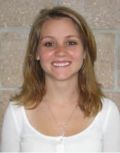 Heather Hunt |
Heather Hunt is pursuing a doctoral degree at Cornell University in the department of Materials Science and Engineering. Her work in Dr. Eve Donnelly's lab focuses on understanding the pathophysiology of fragility fractures in diabetics. Specifically, Heather is correlating mechanical properties with composition in the bone of patients with and without type 2 diabetes. She received her undergraduate degree in Engineering Physics from the Colorado School of Mines, and prior to beginning graduate studies, she worked at HRL Laboratories as a processing engineer for integrated circuits. In her free time, Heather enjoys skiing, baking, and volunteering with Big Brothers Big Sisters. |
 Nahyr S. Lugo-Fagundo |
Nahyr S. Lugo-Fagundo is a junior pursuing a B.S. in Biomedical Engineering with a concentration with Cell and Tissue Engineering. She aspires to matriculate into medical school in the year 2015. She was born and raised on Puerto Rico where she got her high-school diploma. During the summers between 2008 and 2010 she took classes at the Harvard Summer School Program and at the University of Pennsylvania. During her college years, she is active with university programs such as HOPHELP, HOPKids, Society of Women’s Engineer JHU and volunteers at the Kennedy Krieger Institute. She is currently involved in research at the Johns Hopkins Medical Institution working along with Principal Investigator Dr. Anne Murphy and Post Doctorate Dr. Genaro Ramirez. She recently collaborated on a paper that is currently being submitted titled, “Cardiac Troponin I Pro82Ser Variant Induces Diastolic Dysfunction, Blunts ß- Adrenergic Response and Impairs Myofilament Cooperativity”. Nahyr is fluent in both Spanish and English and is experienced in MATLAB, Mathematica, Microsoft Office applications and Origin. |
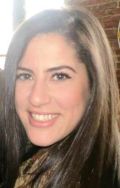 Constance Maglaras |
Constance Maglaras is a second year PhD Candidate in Biomedical Engineering at Stevens Institute of Technology. Her research involves optimizing mechanical loading parameters which promote bone proliferation and growth in cell seeded scaffolds. The research that she has conducted in bone regeneration and characterization has been recognized at numerous conferences, and produced several presentations and awards including the New Investigator Research Award Finalist at the Combined Orthopaedic Research Society. At Stevens, Connie is a teaching assistant for the Biomaterials Laboratory course, as well as an instructor for the Pre-Med Science and Engineering Program. When she is not at the institution, she works as an instructor and choreographer in acrobatics, ballet, and hip-hop. She enjoy dancing, fishing, equestrian and traveling. |
 Emma Marriott |
Emma Marriott is a sophomore studying computer science with an emphasis on Biocomputation at Stanford University. Her interests include synthetic biology, bioinformatics, and neurobiology, and she hopes to be involved in biomedical technology in the future. Her past research experience has spanned across biomedical research these past 5 years. Most recently, she conducted protein glycosylation studies at the ETH Zurich and is working on a long term project analyzing point mutations associated with Hypertrophic Cardiomyopathy in Dr. Spudich's lab at Stanford. In her free time, she enjoys traveling, training in Muay Thai, and playing classical piano. |
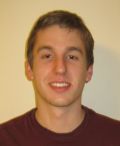 Will Matern |
Will Matern is a second year PhD candidate in the biomedical engineering program at Johns Hopkins University and is advised by Dr. Joel Bader. He studies tuberculosis and phages that infect M. tuberculosis using computational modelling and wet lab techniques. He is particularly interested in understanding dormancy, persistence, and latency in Tb. Before starting at Hopkins he was a summer student researcher at Los Alamos National Laboratory. He completed undergraduate studies at the University of New Hampshire in mechanical engineering. |
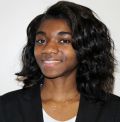 Ememabasi Okoh |
Ememabasi Okoh is from Akwa Ibom State, Nigeria and a Senior in Drexel University, pursuing a Bachelor’s degree in Biomedical Engineering. After her undergraduate education, she hopes to attend graduate school for a combined M.S/Ph.D. program in Biomedical Engineering. Her vision is to return to her home country to expand and equip universities with biomedical research facilities and maintain medical equipment in hospitals in order to improve the standard of health care. Despite her ambitious nature, she is also very amicable which makes her endearing to others. She has served as the 2012/2013 Clinton Global Initiative University (CGI U) Campus Representative and is currently the President of the Drexel African Students Association (DASA). She is selfless and relentless and aims to create a lasting impact in her school by encouraging students to identify a major global issue affecting their environment and devise sustainable measures to alleviate these issues. She is also a research assistant in the Materials Engineering Department at Drexel. When she is not cooking, blogging or making jewelry, she is an alto singer in the Drexel University Gospel Choir (DUGC). She has a few struggles, but who does not? What sets her aside from her peers is her ability to work under pressure, separate her impediments from her strengths, and forge ahead. |
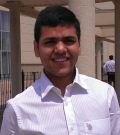 Kramay Patel |
Kramay Patel is a 2nd year engineering student at the Division of Engineering Science at the University of Toronto, where apart from his regular academics, he pursues a wide array of engineering focused extra-curricular activities. These extra-curricular activities have really helped spark an interest in him for electrical, electromechanical and embedded systems and their applications in a wide array of engineering contexts. During his summers, Kramay is involved in performing rehabilitation engineering research with Dr. Milos R. Popovic at the Rehabilitation Engineering Laboratory. In the past, he has helped develop a biofeedback trunk rehabilitation device, developed onset detection algorithms in EMG signals from the trunk and neck muscles and developed a wheelchair research platform in conjunction with NI Labview™. In the summer of 2014, he aims at extending this research platform to help rehabilitate trunk muscles in patients with Spinal Cord Injury. Apart from his excellent academic, co-curricular and research backgrounds, Kramay has a passion for sustainable engineering and takes on a lot of personal projects in regards for the same. He believes that with hard-work, dedication and passion, he can make a meaningful difference in the world and in the lives of those around him. |
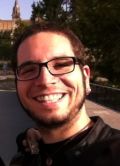 Abdon Pena-Francesch |
Abdon Pena-Francesch is a PhD student in Engineering Science and Mechanics at Penn State University under guidance of Prof. Melik C. Demirel. His research focuses on the characterization and development of novel bioelastomers. Specifically, he is studying the thermo-reversible properties and the processing of SRT (Squid Ring Teeth) proteins for biomedical applications and biomimetic devices. He received his B.S in Mechanical Engineering and his M.S. in Chemical Engineering at Institut Químic de Sarrià (Barcelona, Spain), where he was developing anti-biofouling coatings for biosensors by iCVD (advised by Prof. Salvador Borros). Outside the lab, he enjoys playing piano, scuba-diving and travelling. |
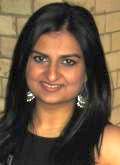 Maneesha Rajora |
Maneesha Rajora is an MD/PhD candidate, currently completing her first year of medical school at the University of Toronto. Prior to entering the MD/PhD program, Maneesha gained research experience in the fields of biomaterials, drug-delivery, organic chemistry and medicinal chemistry while completing her undergraduate thesis at Dalhousie University and her M.A.Sc. at the University of Toronto. She hopes to continue her graduate studies within the field of biomedical engineering with a research focus on biomaterials as drug-delivery or tissue engineering platforms. Outside of academics, she enjoys participating in various activities, including event organization, travelling and semi-classical Indian dance performances and choreography. |
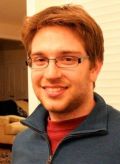 Brian Ross |
Brian Ross is currently a third year PhD student at Johns Hopkins University in Biomedical Engineering. He is conducting his thesis work in Dr. Jin Zhang's laboratory, in which he has been studying the spatial organization of lipids in the plasma membrane using superresolution microscopy techniques. He has also has been working to develop novel technology in the field of fluorescent protein-based kinase activity biosensors. Brian received his bachelor's degree at MIT, where he worked with Dr. Dane Wittrup to develop and characterize bispecific and multispecific antibodies that can downregulate epidermal growth factor receptor (EGFR) on the plasma membrane. |
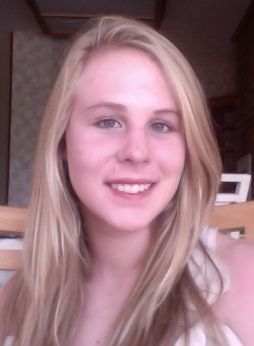 Alexandra Sabin |
Alexandra Sabin was born and raised in Austin, Texas, but is currently a second year biochemistry major at the University of Florida. She is inher third year of biomedical engineering research in the Schmidt lab, and looks forward to continuing into her fourth year with her University Scholars stipend for research. Outside of classes and BME research, Alexandra rusn a second and third grade science club, volunteer with a local elementary after school program, is a Big in Big Brothers Big Sisters of Mid-Florida, and alsos play soccer on two different teams, as well as pick-up. |
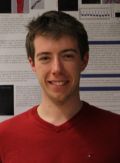 Jonas Schwan |
Jonas Schwan is a second year Ph.D. student in the Department of Biomedical Engineering at Yale University, working in the laboratory of Dr. Stuart Campbell. He received his MEng from the University of Oxford, where he specialised in Biomedical Engineering and developed an interest in Cardiovascular Biomechanics. During his PhD, Jonas is developing customizable engineered heart tissues using decellularized, native cardiac tissue. The Campbell lab is applying these EHTS as diagnostic tool for genetic diseases such as familial cardiomyopathy using iPSCs from a wide range of patients. Furthermore, Jonas developed a recent interest Computational Optogenetics. In his free time, he can be found outside on the rugby pitch, rowing, running or cycling as well as exploring art exhibitions in New York. |
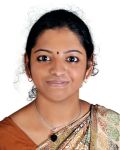 Janani Venugopalan |
Janani Venugopalan received a Bachelor of Technology in biomedical engineering from Sathyabama University, Chennai, India, in 2008, a Bachelor of Engineering double major in computer science from Sathyabama University, Chennai, India, in 2009, a Masters in Technology in clinical engineering from Indian Institute of Technology, Madras, Chennai, India, in 2011. She worked as a systems design engineer in Perfint Healthcare, and interned in Christian Medical College and All India Institute of Medical Sciences. She is currently pursuing her Ph.D. in biomedical engineering in Georgia Institute of Technology, Atlanta, Georgia. Her research focuses on health informatics. She is actively involved in projects pertaining to clinical decision making using HER data, which are currently in collaboration with Children’s Healthcare of Atlanta and Emory. Her tools and publications find applications in sickle cell disease, traumatic brain injury, and intensive care unit. |
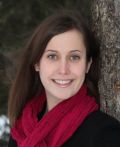 Hannah Watkins |
Hannah Watkins is a second year biomedical engineering Ph.D. student at Cornell University, studying under Professor David Putnam. Her research focuses on the development of vaccine adjuvants using bacterial outer membrane vesicles. Specifically, she aims to generate adjuvants that are capable of biasing the body towards a Th1 immune response that will allow improved targeting of intracellular pathogens. Previously, Hannah received an M.Phil. degree in materials engineering from Imperial College London and a B.S. degree in biomedical engineering from the University of Rochester. |
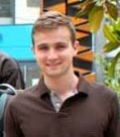 Greg Yeutter |
Greg Yeutter is a fourth-year BS/MS student at Drexel University, pursuing a degree in electrical engineering. His first word was "light" - an early sign of a lifelong passion. Greg is the lead student researcher at the dLUX Lighting Lab at Drexel, which develops and studies lighting technologies for indoor and built environments that can improve health outcomes and save energy. Greg's primary focus is the development of a control system that enables color-changing LED light fixtures to mimic the temporal patterns of natural daylight. The goal of this system is to alleviate the symptoms of circadian rhythm disruption due to artificial light, which can have a major impact on the health of individuals with dementia, autism, and seasonal affective disorder, as well as that of relatively healthy people. Greg is actively developing a company which will put this technology in the hands of consumers, and later to commercial clients. Upon completion of his MS degree, he plans to continue working with the dLUX lab in pursuit of a Ph.D. |
